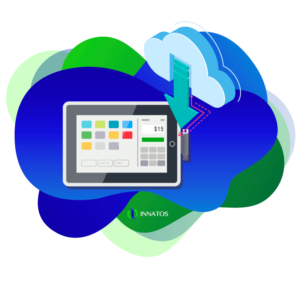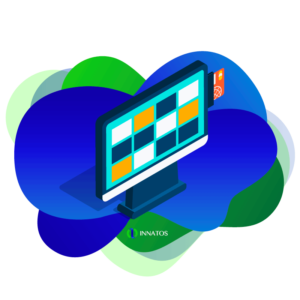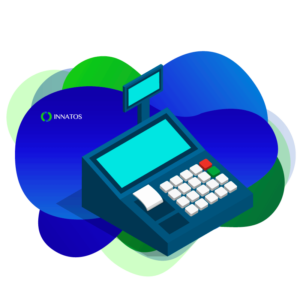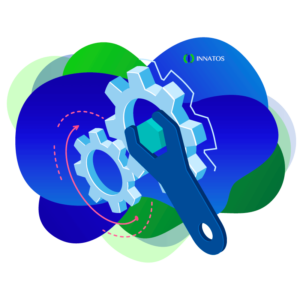What is a cloud-based point of sale?
What is a cloud-based point of sale? In the past, most face-to-face companies stored all of their point-of-sale data locally. Here you can find included the prices of the items and also the transaction records for each sale. Generally, this data was kept on a PC or server on the site. On the other hand, they can be stored on the server of a network of a private company in the case of large retail chains.
However, today most business tools rely on online functionality over the internet for their point of sale systems. Therefore, there has been a constant progression towards cloud-based point-of-sale systems for businesses of every size. You may ask: what is a cloud-based point of sale? This article will answer that question next.
Next, we will present the cloud-based point-of-sale system. In addition, we will describe the difference between cloud-based point-of-sale systems and locally hosted point-of-sale systems.
What is a cloud-based point of sale system? How does a cloud-based point of sale work?
 Cloud-based point-of-sale systems process and store online sales data. That is, they do not do it locally on your local computer or server. The point of sale interface that the employees interact with is made for use on Internet-enabled devices. Tablets, smartphones, and touch screen monitors are included among these devices. On the other hand, the content of a point of sale system can be accessed through any web browser by managers or administrators.
Cloud-based point-of-sale systems process and store online sales data. That is, they do not do it locally on your local computer or server. The point of sale interface that the employees interact with is made for use on Internet-enabled devices. Tablets, smartphones, and touch screen monitors are included among these devices. On the other hand, the content of a point of sale system can be accessed through any web browser by managers or administrators.
What is a cloud-based point of sale? Cloud-based point-of-sale systems are sometimes referred to as point-of-sale applications (also known as apps) instead of software. The reason is that they are very often used on mobile devices such as phones or tablets. Sometimes, this point of sale systems are also called electronic point of sale to reflect the fact that the software runs on electronic equipment.
Explaining the term cloud-based point of sale
 “Cloud-based” refers to online data storage and processing. This is an alternative to using the hard drive of your computer to store consumer data. The information uploaded to the cloud is stored on servers provided by the provider of the cloud software system. Cloud point of sale providers handle data hosting for you.
“Cloud-based” refers to online data storage and processing. This is an alternative to using the hard drive of your computer to store consumer data. The information uploaded to the cloud is stored on servers provided by the provider of the cloud software system. Cloud point of sale providers handle data hosting for you.
Meanwhile, the business administrator can verify and use sales data from anywhere as it is updated in real-time in the cloud. This also means lower equipment costs for your business. The reason is that a tablet or mobile phone that is already owned by the business can be used as a point-of-sale interface.
The data is stored on the internet servers of the point-of-sale provider. Therefore, a cloud-based point-of-sale system can generally only work when there is an Internet connection. However, providers may offer some offline functionality. This will help you minimize the potential disruption of their customer service.
Next, we will compare a cloud-based point of sale system with a locally hosted point of sale system.
Comparison with a remote point of sale system normally
 In traditional point-of-sale systems, business owners, such as restaurants, have devices to take orders and process payments. These devices are usually the terminals you see on the counter. These operations connect to a sales server.
In traditional point-of-sale systems, business owners, such as restaurants, have devices to take orders and process payments. These devices are usually the terminals you see on the counter. These operations connect to a sales server.
This server consists of a large computer sitting in a back room. Subsequently, the system was improved with some kind of network, cables, and network equipment. For example routers or switches. These cables carried and managed the flow of traffic between the point-of-sale terminals and the sales server.
The cloud-based point of sale eliminates the need for a server. This is achieved by moving the traffic flow to the point-of-sale system provider’s data center. Because wireless networks are very common today, it is not necessary to connect everything with cables.
The operations of the larger businesses had expensive data centers with servers and network equipment on-premises. These were used to run test environments and data reporting and analysis. These servers are no longer needed. They have been replaced by the cloud provider’s data center.
What is a cloud-based point of sale and what are the advantages?
 Cloud-based point-of-sale solutions are likely to deliver significant benefits in terms of cost, simplicity, flexibility, and function.
Cloud-based point-of-sale solutions are likely to deliver significant benefits in terms of cost, simplicity, flexibility, and function.
Cloud point of sale system changes the way businesses acquire their point of sale. In the past, the hardware needed to be purchased in advance. The software had to be licensed and terminal fees and support and maintenance contract fees paid.
On the other hand, with the point of sale in the cloud merchants pay a monthly rental fee for access to the software. This payment model is known as the software-as-a-service model. The trader simply uses the product, so he does not have to worry about maintenance. That’s what the supplier does.
Cloud point-of-sale software can offer a more affordable acquisition model and lower cost. The reason is that it does not require an expensive hardware purchase in advance.
Simplicity of Use and flexibility
 The cloud-based point of sale reduces the complexity associated with on-premises servers. For example, it is no longer necessary to worry about computer networks, configuration, and constant maintenance.
The cloud-based point of sale reduces the complexity associated with on-premises servers. For example, it is no longer necessary to worry about computer networks, configuration, and constant maintenance.
To install the point of sale system in the cloud, simply download the application on the relevant devices. In this way, your devices will communicate with the system located in the cloud. That simple, a store can start receiving orders. Updates are sent to devices from the cloud.
It is also important to consider the flexibility of the cloud-based point of sale. The point of sale in the cloud can often be adopted in stages according to the needs and budget of the company. A solution that delivers seamless updates at the point of sale system in the cloud is an excellent choice for businesses looking to expand themselves.



Leave a Reply
Want to join the discussion?Feel free to contribute!